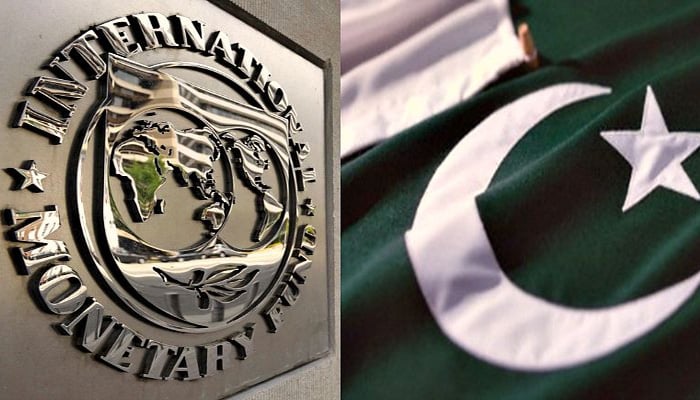‘Pakistan needs IMF-backed reforms’
KARACHI: Pakistan’s incoming government would need belt-tightening reforms introduced by the IMF’s loan program to tackle external account challenges, a senior industry official said on Wednesday amid reports that talks are underway to obtain $1 to 2 billion from Saudi Arab or UAE.
Ehsan Malik, chief executive officer of Pakistan Business Council (PBC) said the next government should seek financial assistance of the IMF instead of knocking at the door of friends of Pakistan.
“It’s better to go to the lender of last resort as a long-term solution,” Malik told The News over phone. Pakistan has been under IMF’s programs for the 12 times in the past 28 years. Malik said the Washington-based lender introduces belt-tightening measures to discourage imports that are more than double to the country’s exports of $23 to 24 billion.
PBC’s chief executive said Pakistan’s current account deficit stands at around $16 billion and “if you include eight billion dollars of debt repayment obligations the amount reaches $24 billion”.
He acknowledged that IMF’s next loan size may be of $6 to 8 billion. But, it may consider debt rescheduling if a need arises after the program. Industry officials said the finance ministry is working on a plan to get $1 to $2 billion from Saudi Arab or UAE after getting $1 billion from China.
China’s funding is seen as futile attempt as Pakistan already rakes up more than one billion dollar of trade deficit a month vis-à-vis its neighboring country.
Malik said fund injection from friends of Pakistan “may give the country respite for three to four months”. “Exports are recovering, but you can’t bank on (them),” he added. Pakistan’s share in world exports has declined over the last decade and a half whilst that of Bangladesh grew two and half times and Vietnam registered a sevenfold increase.
PBC, a business policy advocacy platform, said there are no quick fixes for what ails the economy. “Instead of trying to manage it through short term solutions… the incoming government (must) try to fix the fundamental flaws,” the council said in a report, titled ‘100-Day Economic Agenda for the Incoming Government’.
PBC said five to six million youth are unemployed and two million reach employable age every year. Energy costs need to be brought down to a level competitive with Bangladesh, which is half of Pakistan’s costs, to rescue share of manufacturing sector in GDP. PBC said trade agreement with China should be renegotiated.
“The Chinese should be encouraged to manufacture in Pakistan instead of exporting goods to it,” it said. “Pakistan should be more selective in attracting foreign direct investment. It should focus on investment into export generating industries or those that bring technology or capital not otherwise available or for which the risk appetite is missing amongst local companies.”
-
 Factory Explosion In North China Leaves Eight Dead
Factory Explosion In North China Leaves Eight Dead -
 Blac Chyna Opens Up About Her Kids: ‘Disturb Their Inner Child'
Blac Chyna Opens Up About Her Kids: ‘Disturb Their Inner Child' -
 Winter Olympics 2026: Milan Protestors Rally Against The Games As Environmentally, Economically ‘unsustainable’
Winter Olympics 2026: Milan Protestors Rally Against The Games As Environmentally, Economically ‘unsustainable’ -
 How Long Is The Super Bowl? Average Game Time And Halftime Show Explained
How Long Is The Super Bowl? Average Game Time And Halftime Show Explained -
 Natasha Bure Makes Stunning Confession About Her Marriage To Bradley Steven Perry
Natasha Bure Makes Stunning Confession About Her Marriage To Bradley Steven Perry -
 ChatGPT Caricature Prompts Are Going Viral. Here’s List You Must Try
ChatGPT Caricature Prompts Are Going Viral. Here’s List You Must Try -
 James Pearce Jr. Arrested In Florida After Alleged Domestic Dispute, Falcons Respond
James Pearce Jr. Arrested In Florida After Alleged Domestic Dispute, Falcons Respond -
 Cavaliers Vs Kings: James Harden Shines Late In Cleveland Debut Win
Cavaliers Vs Kings: James Harden Shines Late In Cleveland Debut Win -
 2026 Winter Olympics Snowboarding: Su Yiming Wins Bronze And Completes Medal Set
2026 Winter Olympics Snowboarding: Su Yiming Wins Bronze And Completes Medal Set -
 Trump Hosts Honduran President Nasry Asfura At Mar-a-Lago To Discuss Trade, Security
Trump Hosts Honduran President Nasry Asfura At Mar-a-Lago To Discuss Trade, Security -
 Cuba-Canada Travel Advisory Raises Concerns As Visitor Numbers Decline
Cuba-Canada Travel Advisory Raises Concerns As Visitor Numbers Decline -
 Anthropic Buys 'Super Bowl' Ads To Slam OpenAI’s ChatGPT Ad Strategy
Anthropic Buys 'Super Bowl' Ads To Slam OpenAI’s ChatGPT Ad Strategy -
 Prevent Cancer With These Simple Lifestyle Changes
Prevent Cancer With These Simple Lifestyle Changes -
 Air Canada Flight Diverted St John's With 368 Passengers After Onboard Incident
Air Canada Flight Diverted St John's With 368 Passengers After Onboard Incident -
 Experts Reveal Keto Diet As Key To Treating Depression
Experts Reveal Keto Diet As Key To Treating Depression -
 Inter Miami Vs Barcelona SC Recap As Messi Shines With Goal And Assist
Inter Miami Vs Barcelona SC Recap As Messi Shines With Goal And Assist




